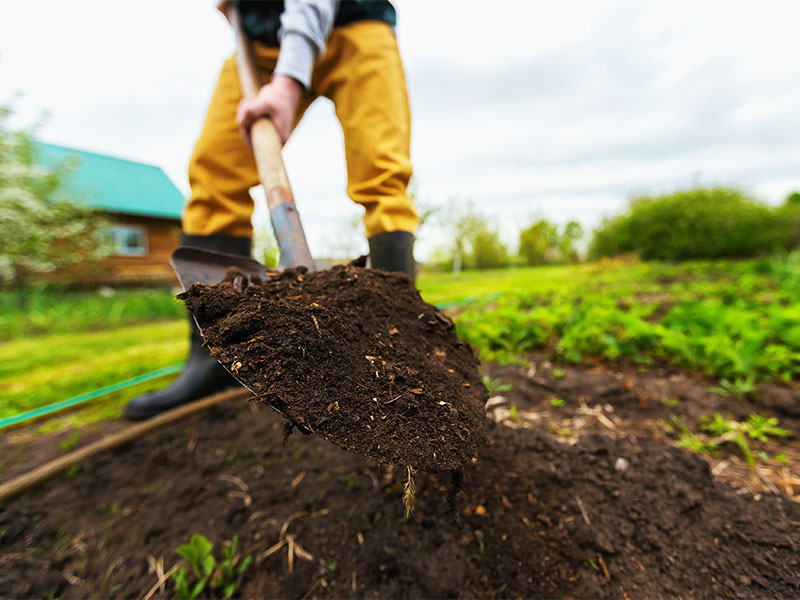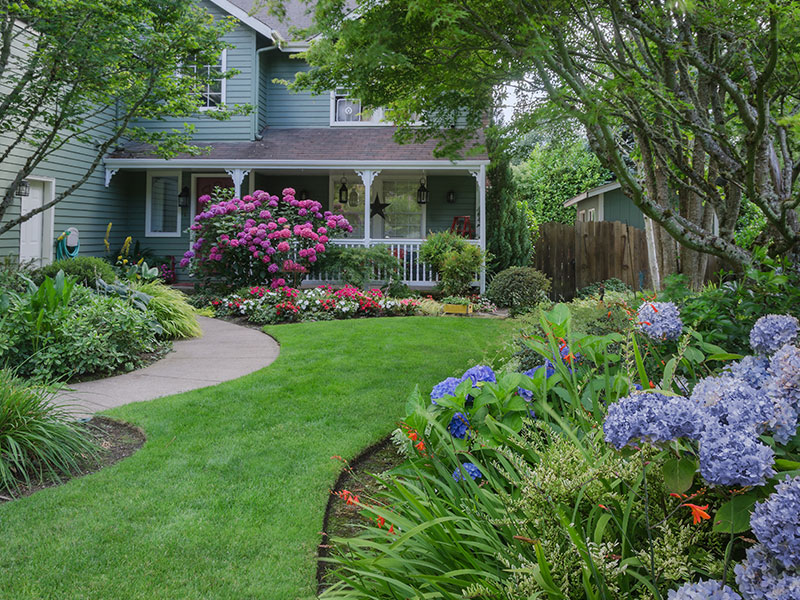Have you ever had dead spots in your garden? Or a complete garden bed that nothing survived in? Your garden soil might be to blame!
Lots of homeowners come across the issue of planting annuals and perennials in the spring, year after year, only for them to not survive past a couple of weeks. You might think that the cold harsh winter is to blame or maybe not watering your gardens enough, but if you consistently face the same problem, then it could be an issue with your garden soil. I always had issues in my home garden where nursery bought plants wouldn’t last past a single season and it was nearly impossible to grow plants from seeds. If you are facing the same issue, you could call us to have your old soil completely removed and replaced with new, nutrient-rich soil OR you could try these simple steps at home to improve your soil quality and be on your way to having a beautiful lush garden.

1. Compost
Compost helps a lot with water retention and adds nutrients to the soil. You
can buy compost and have it delivered but it’s free to make your own! You
can easily save your kitchen and yard waste to make your very own organic
compost that is nutrient rich. You can start by saving coffee grounds,
eggshells, leaves, and even grass clippings! Save them in a compost pile and
mix it in with the soil as the pile breaks down.
2. Vermicompost
Using worms is a great, natural way you can improve garden soil. You can
add them to your compost pile to have them break down the compost faster
while mixing their castings in. You can also add them directly to your garden
soil with compost and mulch and they will aerate the soil and put their
castings directly mixed in with the soil as well.
3. Mulch
I personally love mulch! It has so many benefits and is an easy, hands-free
way for homeowners to improve their soil quality. Mulch locks in moisture
and adds tons of organic matter to your soil as it breaks down. Another huge
benefit with mulching is that when it’s done in thick layers of 4”-6” or more,
it can slow down and prevent the growth of weeds.
4. Get your Soil Tested
Sometimes you’re left with no choice but to get your soil tested. In most
areas, universities or garden centers are usually capable of taking in and
testing soil samples. Once you get the results back you can clearly identify
what nutrients are missing and directly add those in. You can add them by
using fertilizer or more organic ways such as:
- Fish emulsion, blood meal or legume cover crops for low nitrogen.
- Banana peels and wood ash for low potassium
- Lime, gysum or clam/oyster shells for low calcium
- Epson salts or dolomitic lime for low magnesium
5. Raised Beds
If your soil has too much clay or rock in it and you’ve done a number of
things to improve it but none of it’s worked, maybe it’s time to consider
raised garden beds. They are an easy fix to poor garden soil problems. You
can either make them yourselves or buy them from the store. This way you
completely control what goes into the soil once you fill them up.



